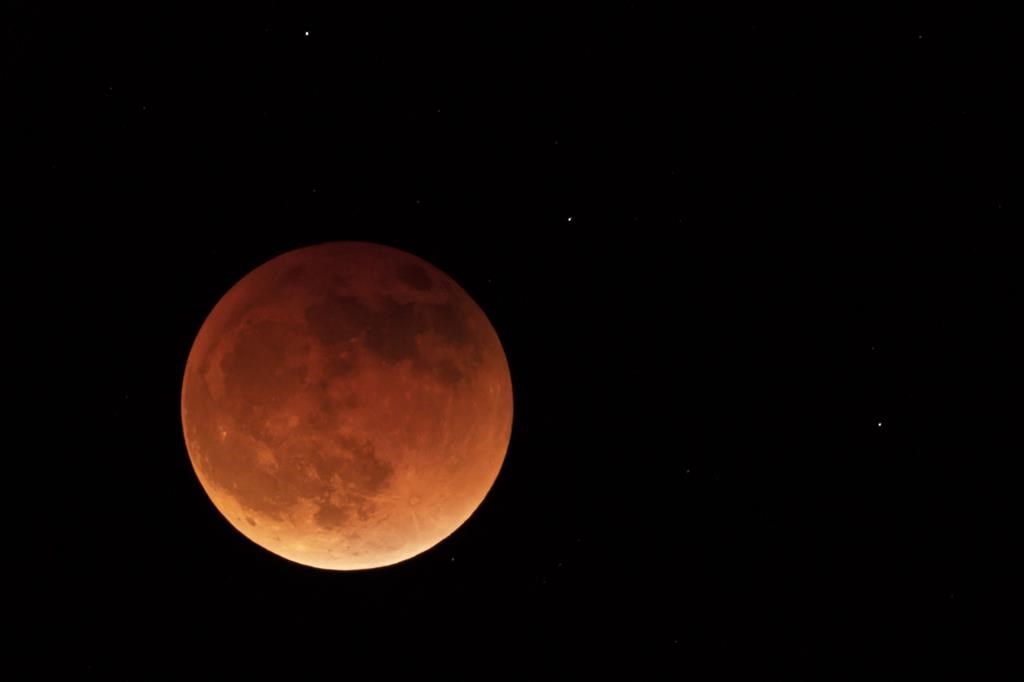The last lunar eclipse of the year is coming, but with a cloudy night expected over Winnipeg the best view may be found online, says a local astronomer.

But if the skies happen to clear by early Tuesday morning, Winnipeggers will be in for quite a show, says Manitoba Museum’s planetarium astronomer, Scott Young.
“It’s not it’s not one of those things where you have to be in a certain spot at a certain time — it lasts about six hours and it’s beautiful,” Young told 680 CJOB Monday.
“Basically the only light that gets to (the moon) during totality is the light from all the sunrises and sunsets all around the world right then.

“And so it’s that beautiful red sunset color lighting up the moon.”
Young says the eclipse — with the moon passing through Earth’s shadow — will start around 2 a.m. Tuesday locally and last until sunrise just before 7 a.m.

Get breaking National news
But he says what he calls the “interesting stuff” — when the moon goes into the darker part of the eclipse — will start around 3:15 a.m. and last until around 5 a.m.
“Every once in a while, things line up just perfectly so that the moon actually goes into the shadow cast by the Earth,” he explains.
“When the moon goes into the Earth’s shadow, that’s when we see a lunar eclipse. And it happens a couple of times a year, but you can’t always see it from our location, so this is a really good one.
“Now we’re just dependent on the weather to have nice clear skies for tomorrow morning after midnight, basically.”
Unfortunately Environment Canada’s forecast doesn’t look favorable for sky-watching.
As of Monday afternoon the national weather service was calling for mainly cloudy conditions over the city, with a 60 per cent chance of flurries overnight.
That’s why Young is recommending those hoping to see the eclipse start looking online for a livestream around midnight, unless the skies clear.
“In the modern age, just because it’s cloudy here, somewhere in the world it will be clear,” he said, adding the eclipse will be visible across North America.
“There’s lots of folks with telescopes and webcams and internet access and they’re all going to be connected.”
Young says the Manitoba Museum will also try to livestream the event, but Young acknowledges “the forecast is just not looking good.”

In the wake of the eclipes, next week’s full moon is also called a Beaver Moon.
According to the website Almanac.com, it’s called that because it happens during the month when beavers begin taking shelter in their lodges.
The website says the full moon is also known by the names of Digging, Deer Rutting, Whitefish, Frost and Freezing.
Lunar eclipses are also known as Blood Moons, making this eclipse the Beaver Blood Moon.
— with files from Global News’ Doyle Potenteau








Comments
Want to discuss? Please read our Commenting Policy first.